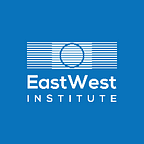Tackling the Underrepresentation of Women in Foreign Policy
As women constitute 50% of the population, their underrepresentation in most fields, including in diplomacy and as ambassadors, is disappointing. Historically, one’s gender seems to play a role in appointing and hiring in the diplomatic field, a field traditionally dominated by men.
Women in Leadership
Women have held leadership roles in history: Margaret Thatcher, Indira Ghandi and Golda Meir being a few recent examples. However, these women displayed similar leadership styles to their male counterparts and their policies didn’t reflect the fact that they were female: they were as likely to engage in military conflict, no more likely to promote women within their government, and didn’t display so-called female leadership traits. To be effective and lead to policy changes, female participation must therefore emerge at the grassroots level.
Certain countries, specifically in Scandinavia, are committed to achieving gender equality. Policies do not necessarily translate into having a female leader but in including women at all levels of decision-making. While the current Swedish Prime Minister is male, his team is gender-balanced and it is under the impulsion of its foreign minister, Margot Wallstrom, that the Swedish government declared a feminist foreign policy, aiming to strengthen women’s Rights, Representation and access to Resources, with consistent Reality checks (4 R’s). Sweden’s policy led to a strain in its relations with Saudi Arabia, when Margot Wallstrom openly criticized the Saudis and challenged their human rights records.
Women at the Negotiating Table
Gender-influenced foreign policies become particularly impactful in post-conflict reconstruction. During a UNSC meeting, Lichtenstein, Switzerland, Austria and Slovenia cited data showing that women’s participation in peace processes increased by 20% the likelihood of a peace agreement lasting at least two years, and by 35% the probability of it lasting 15 years. UN Women further notes: “making women’s participation count is more important than merely counting the number of women included in peace processes.” In other words, giving women a meaningful voice is key to developing and implementing better policies for all, not just for women.
The adoption of UNSCR 1325 constituted a landmark in countering gender imbalance at the negotiating table and recognizing the key component of including women at all stages of the peace-making process. Tackling and punishing sexual violence crimes, which affect women disproportionately, became a central feature in establishing long-lasting peace.
